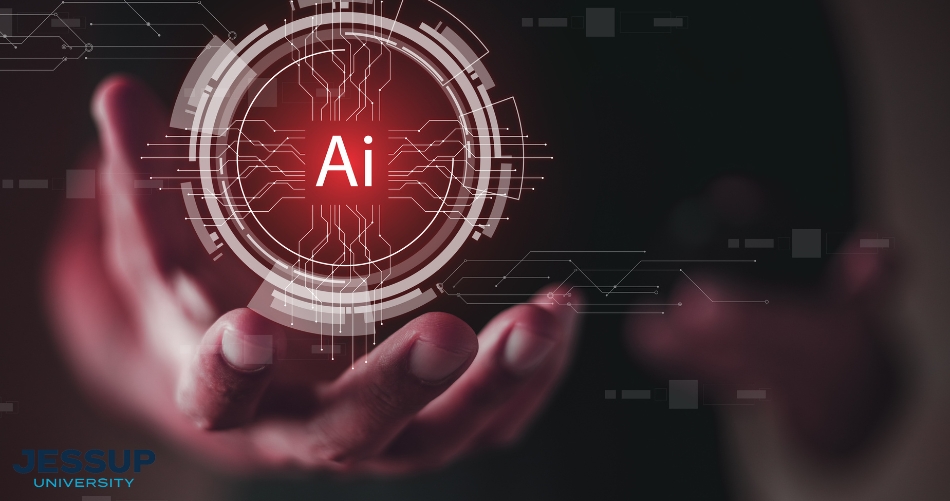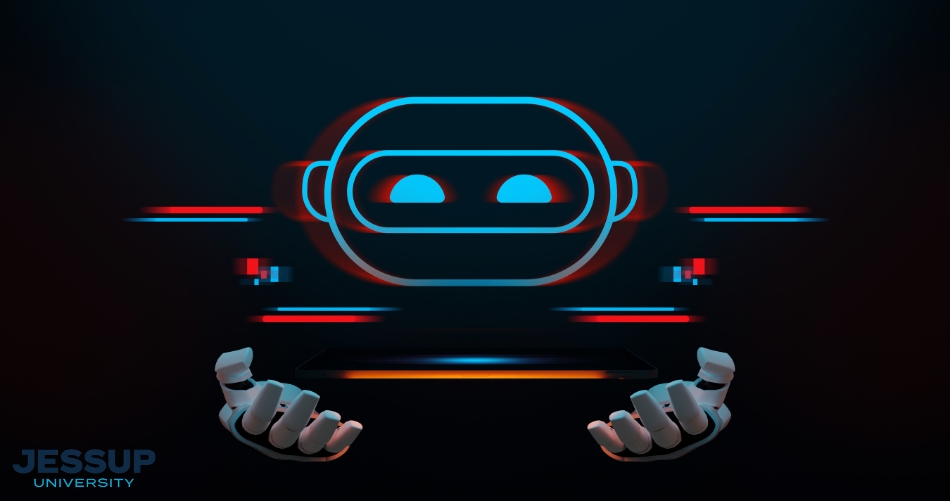
Will AI Replace Software Engineering?
Artificial intelligence (AI) is transforming industries across the board. From healthcare to finance to transportation, AI-powered technologies are automating tasks, enhancing efficiency, and driving innovation.
The field of software engineering is no exception. As AI capabilities advance rapidly, there is growing speculation about AI’s potential impact on the future of programming and software development.
Will intelligent machines and code-generating algorithms render human software engineers obsolete? Or will AI usher in an era of heightened productivity and creativity for developers?
In this in-depth article, we examine the role of AI in software engineering today, discuss predictions about AI replacing programmers, and provide perspectives on how AI is likely to augment rather than replace the work of developers building the software of the future.
Key Takeaways
- AI promises to automate mundane coding while augmenting human creativity, supervision and judgment needed still for responsible software innovation.
- Sophisticated AI will likely expand the capabilities achievable with smaller engineering teams – increasing per-developer leverage.
- Demand for developer skills in AI itself as well as specialized engineering domains will see an upswing even as routine programming job needs drop.
- Cross-disciplinary software design combining domain expertise like healthcare, engineering etc. with AI prowess will offer more durable career prospects rather than pure coding skills.
- Organizations will need to support their developers in acquiring skills needed to harness AI collaboratively while strengthening guardrails against risks from over-reliance on algorithms.
- Provided they evolve competencies continuously, talented developers have an ocean of opportunities to make outsized impact working symbiotically with smart AI tools.
The Growing Role of AI in Software Engineering

Before speculating about AI replacing software engineers, it’s important to understand the current role AI plays in software development processes and what near-future capabilities are on the horizon.
Automating Mundane Programming Tasks
- AI-powered tools are automating various repetitive coding tasks that take up developers’ time and mental energy. This includes generating code snippets, documentation, and even entire modules or functions based on high-level prompts.
- For instance, natural language processing (NLP) models can translate spoken or written language into executable code. This allows developers to describe what they want their program to do in plain language rather than worrying about syntax details.
- By relieving developers from repetitive and mundane coding, testing, and debugging tasks, AI allows them to focus their efforts on higher-value creative problem-solving and strategic decision-making.
Enhancing Software Quality
- AI testing tools analyze source code to identify vulnerabilities and predict bugs before software gets deployed. This allows issues to be addressed early on.
- Machine learning techniques are used for intelligent code analysis, empowering AI-assisted software testing frameworks. These frameworks can create their own test data and rapidly carry out robust testing.
- AI algorithms also scan code to detect anti-patterns and opportunities for improvement. This helps developers optimize performance, strengthen security, increase reliability and more.
Streamlining Collaboration
- AI-powered tools make it easier for distributed software engineering teams to collaborate. Smart chatbots enable quicker access to documentation and assistance for developers.
- NLP interfaces analyze conversations in developer chat channels to surface urgent queries, track progress, extract decisions/action items automatically, and generate meeting summaries.
- These capabilities ensure improved awareness, transparency, and efficiency in collaborative software projects involving multiple stakeholders.
Accelerating Delivery Timelines
- Software delivery estimates are notorious for being inconsistent with actual timelines. Sophisticated AI tools are changing that by analyzing data from past projects.
- Factors like team composition, problem complexity, codebase size, dependency risks, and solution requirements are weighted to make highly accurate delivery projections.
- More predictable timelines enable improved planning, resource allocation, and timeline management – making software engineers’ jobs easier.
And this is just the beginning. The applications of AI in software engineering are growing rapidly as programmers integrate AI tools into their workflows. Exciting possibilities lie ahead thanks to co-creation between human developers and AI systems.
So will AI replace programmers eventually by taking on a more autonomous role rather than assisting them? Let’s examine some leading perspectives.
Want To Learn Computer Science From Home?
Jessup University’s Unique Online BS in Computer Science Can Make It Happen!
Will Programmers Become Obsolete in an AI-Dominated Future?
Given AI’s rapid progress in automating coding tasks and improving software quality, it’s natural for some to predict that developers might go extinct eventually.
However, most experts believe software engineers will continue playing a crucial role alongside increasingly capable AI tools rather than being replaced entirely.
The Case Against AI Replacing Programmers
There are several compelling reasons why AI won’t make human software engineers obsolete:
- AI currently lacks intuitive human judgment, strategic reasoning skills, and the ability to respond appropriately in unexpected edge cases. Developers provide oversight.
- There are innovations only human creativity can conceive. While AI might build upon existing ideas autonomously, it cannot envision breakthroughs requiring “outside the box” thinking.
- Understanding end-user needs, setting technical vision, making executive decisions about complex engineering trade-offs, and communicating plans across teams are human developers’ forte.
- Ethical considerations around privacy, security, transparency, and social impact of software require human assessment about risks and safeguards that AI isn’t sophisticated enough to provide.
So in essence, for the foreseeable future, AI cannot replace software engineers entirely because there are indispensable human contributions essential to building advanced software responsibly.
Scenarios Where AI Might Reduce Reliance on Programmers
While unlikely to make them redundant, experts predict AI will plausibly reduce reliance on human coders in certain situations:
- Where programming problems have clear analytical solutions that can be codified from existing patterns without requiring creative problem framing by humans.
- For simple mobile or web applications with predictable functionality unlikely to require constant maintenance, human oversight and judgement might be minimized.
- In domains where adequate guardrails, benchmarks, and regulations exist to ensure AI-driven software development occurs safely, ethically and aligned to end-user needs.
However, developing such guardrails itself necessitates immense human effort. So while narrowly-defined programming tasks might default increasingly to AI systems with sufficient logic, datasets and processing capacity, most experts believe more complex software engineering will still require human direction.
How Will AI Reshape the Role of Software Engineers?

Instead of replaces programmers, AI will augment software teams by handling tedious coding tasks. This phenomenon of AI-assisted coding is also known as co-programming.
As AI chatbots, machine learning algorithms, robotic process automation (RPA) tools and other innovations continually improve code quality and efficiency, they’ll fundamentally reshape what software engineers do on a daily basis as well as demand new skillsets.
Key Role Shifts AI is Enabling
Here are some of the ways AI is already reshaping software engineering roles:
- Less time spent on repetitive coding, debugging and QA testing and more on creative high-level problem analysis and solution design.
- With testing assistance from AI tools, developers can focus more on optimizing overall system architecture for robustness and scale.
- Developing specialized skills in AI governance, machine learning oversight, and impact assessment of AI-driven software becomes crucial.
- With the ability to translate ideas into code rapidly, developers can devote more strategic effort to understanding customer pain points and product conceptualization.
- Ensuring coordination between multiple AI tools while tracking system health/performance and addressing integration issues becomes a critical new role.
- As low/no-code solutions gain sophistication, developers need to cultivate versatile skills to differentiate themselves – knowing multiple domains or excelling in niche areas becomes paramount.
Implications for Organizations & Recruiting
As AI enables increased productivity for existing developers, what are the implications for software-focused organizations and HR teams?
- The overall developer headcount needed to achieve engineering goals likely drops allowing for smaller, nimbler teams even as product capabilities grow exponentially.
- However, finding specialized AI/ML engineering talent for building and monitoring AI systems requires targeted recruitment initiatives. The talent pool is currently smaller compared to traditional software developers.
- Cross-functional collaboration skills become more valued with developers needing increased interactions with non-technical teams in areas like experience design, product strategy and customer science.
- Continuous learning is incentivized across engineer teams to keep up with evolutions in programming tools and algorithms. Especially critical for those in senior or leadership roles.
- Programming languages, frameworks and infrastructure for enabling developer productivity with AI must be supported by dedicated internal tooling/platform teams.
- Gap assessments and technical training are imperative to quantify and address skill deficits that might hamper AI adoption across engineering teams.
Clearly, as artificial intelligence allows software teams to punch above their weight, organizations will need to realign processes like recruitment, learning programs, collaboration methods, and tooling support.
Key Skills for Software Engineers in the AI Age

AI software development platforms will disrupt the skills landscape. Some programming languages might decline rapidly in usage while specialized AI/ML skills in high demand.
Let’s discuss the key competencies software engineers should build for professional success in the era of artificially intelligent coding tools:
Core Software Engineering Skills
- Possessing robust expertise in widely used languages like Python, JavaScript, Java etc. is still essential even with AI coding assistants.
- Understanding fundamental data structures, algorithms, design philosophies and architectural patterns provides foundational knowledge for effectively assessing AI’s code contributions.
- A thorough grasp of software testing methodologies is critical for evaluating system quality and identifying when improvements suggested by AI tools should be overridden by developers.
- As direct coding activities decline, skills in ambiguous problem analysis, requirements evaluation, technical solutioning and system integration become even more crucial.
AI/ML Competency
- Having a sound understanding of statistical analysis, data science and different machine learning approaches allows oversight of AI systems’ software contributions.
- Developers need the discernment to recognize potential bias in data or code generated by AI and mitigate risks through impact analysis, adversarial testing etc.
- Skills in ML model building, MLOps, and AI lifecycle management helps address AI system degradation, security vulnerabilities and ethical usage in coordination with the software engineering lifecycle.
Focus on Creativity
- Creative problem framing and innovation to push boundaries beyond incremental developments will be the differentiator for human developers as AI handles predictable coding patterns.
- Since software customer needs evolve unpredictably, developers must hone their skills in gathering user insights, exploring unarticulated needs and conceptualizing delightful experiences exceeding expectations.
- Creative software solutioning in unexpected scenarios is imperative as AI systems have limited ability to improvise appropriately beyond their training.
Interdisciplinary Knowledge
- As AI handles increasing volumes of standard coding, competitive differentiation arises from specialized domain knowledge in fields like healthcare, finance, transportation, engineering etc. and building customized solutions.
- Complementing programming skills with abilities like 3D/AR modeling, simulation, game theory, animation etc. also allows exploring innovative applications at the intersection of multiple disciplines.
- Even strong expertise in a single industry vertical coupled with software development and AI skills gives engineers an edge in catering to niche sector needs compared to generalized AI coding.
Clearly, despite AI’s rapid evolution, competitive developers in coming decades will need creativity, focus and strategic skills – uniquely human strengths irreplaceable by technology alone even as they harness AI as a partner.
Path to Becoming a Software Engineer & Working with AI
Are you considering a career in software engineering? Jessup University’s Bachelor of Science in Computer Science presents an in-depth program that fuses theoretical foundations with practical application. With in-person and online learning options, our approach is adaptable to various educational preferences, allowing students to excel in their chosen format.
In-person attendees will benefit from 15-week courses, immersive community involvement, and comprehensive resource access. Those opting for the online route can take advantage of shorter, 7-week courses, flexible scheduling, and six annual start dates. This program offers specializations in Cybersecurity, Data Analytics, Data Science, Information Technology, and Software Engineering, providing a customized educational journey whether you’re on campus or studying from afar.
Unlock Your Future in Computer Science
Explore Jessup University’s Innovative Program Today!
Crucial Skills for Success in Computer Science
What is computer science? It’s the field of study that focuses on computation, information, and automation using computers and computational systems. It’s the backbone and foundation behind software engineering and software development, and can lead you many directions within the tech space.
See, prospering in the ever-changing field of computer science is tied to a robust skill set. Jessup University’s program stresses expertise in advanced programming languages, proficiency in modern software development methodologies, and effective technical communication.
The curriculum deepens understanding of computational challenges, their requirements, and constraints. Additionally, it embeds a Christian ethical outlook towards technology, preparing graduates to be proficient and morally responsible in their field.
Whether participating in on-campus activities or via online modules, students are equipped to deploy their skills in various professional settings, armed with our Computer Science degree.
If you’re not yet a software engineer and you’re curious about becoming one, now is the time to actualize your dreams. Jessup University is where your passion for software engineering can evolve into an inspiring vocation and to dive deep into the world of software and AI. Contact us today to discover how you can embark on this dynamic career journey.
More Engineering & Technology Articles
-

Are Web Developers in Demand in 2024? The Continual Explosion of Web Development
The world of web development has seen tremendous growth over the past decade. As more businesses shift their operations online and consumers flock to the internet for…
-

What is the Future of Cloud Computing in 2024 and Beyond
Cloud computing has revolutionized how businesses access computing resources, store data, and deploy applications. Instead of maintaining expensive on-premises infrastructure, companies can leverage the cloud…
-

The Key Differences Between Software Developers and Software Engineers
The world of software development and software engineering can seem complex to those outside the field. Many people use the terms “software developer” and “software engineer” interchangeably, assuming they…
